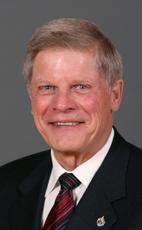Mr. Chairman, I know my hon. friend across the way is a lawyer and I am feeling in need of a lawyer this evening. I want to ask him to clarify some issues for us here.
On August 28 the federal minister in charge of the Coast Guard said that government policy did not prohibit divers from entering a capsized fishing boat where five people, including two children, drowned earlier that month. Then, in the National Post , on September 7, he said:
...the divers are restricted, by regulations in the Canada Labour Code, to open water dives--that is, to diving outside the danger zone under a vessel where dangling nets, cables and other gear threaten to entangle a rescue worker.
There is a contradiction there. Earlier this evening I read the Coast Board fleet safety manual. It was quite clear that:
Penetration into capsized vessels, aircraft, or submerged vehicles and diving in the vicinity of underwater pressure differentials is strictly prohibited.
My reading of the Canada Labour Code issue is that it in fact requires the employer, the Coast Guard, to provide the proper safety equipment. I would take that to mean equipment that would enable the divers to do their job.
We have a contradictory statement from the minister. On the one hand, in August, he said that divers were able to enter, yet in September he said they were not. It is clear from the fleet safety manual that penetration dives are not permitted. The Canada Labour Code states that the onus is on the employer, the Coast Guard, to provide adequate equipment for its members.
Would the hon. member, my friend, who is a lawyer, clarify this complex problem for us?

